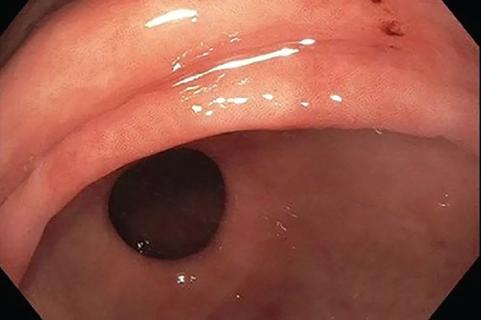Greater awareness among young patients is needed

New research by Cleveland Clinic scientists has found that increasing rates of early-onset gastrointestinal cancers primarily involve cancers of the luminal GI tract.
Advertisement
Cleveland Clinic is a non-profit academic medical center. Advertising on our site helps support our mission. We do not endorse non-Cleveland Clinic products or services. Policy
The research supports more targeted cancer screening and awareness among young people, especially for colorectal and gastric cancers, which are the most significant drivers of the trend. The study also points to factors that may be contributing to rising GI cancer rates, says coauthor Carol Rouphael, MD, a gastroenterologist at Cleveland Clinic.
“These findings raise the possibility of a shared luminal risk factor — something going on inside the GI lumen — which could involve things like the gut microbiota and dietary factors,” she says.
Since 1950, the incidence of GI cancers has been rising in the U.S., but the reasons for this trend have been unclear. Some of the suggested causes include factors like diet that directly interact with the lumen, in-utero exposures and more systemic environmental exposures.
For the study, researchers compared early onset and birth cohort incidence rates of luminal cancers (including esophagus, stomach, small intestine, colon and rectum) with extraluminal GI cancers (pancreas, liver, gallbladder and biliary tree).
When examining birth cohorts, the researchers found a U-shaped trend for luminal GI cancers, with rates declining decade by decade before 1950, and then rising steadily with each cohort born after 1950. When looking at individual luminal cancers (esophagus, stomach, colon, small bowel), the study team found that this trend was driven by both colon and stomach cancers, which showed similar U-shaped birth cohort trends when examined separately.
Advertisement
“We already knew this about colon cancer, but not about gastric cancer,” Dr. Rouphael explains.
In contrast, early-onset extraluminal GI cancers demonstrated a steady increase among cohorts born up to 1950, followed by a period of stabilization, and then a resurgence in recent years.
Dr. Rouphael notes that rising rates of early-onset colorectal cancer led to updated screening guidelines in 2021, with the recommended age to start screening lowered from 50 to 45.
“We see that stomach cancer is also on the rise, following the same U-shaped pattern, though in smaller numbers,” she says. “This suggests that some screening strategies for stomach cancer potentially need to be considered in high-risk populations. This is not something we currently have in the United States.”
The findings highlight the importance of understanding how modern diets such as processed foods, environmental exposures, and other lifestyle changes may be influencing cancer risks, Dr. Rouphael says.
Future studies should focus on identifying shared risk factors and the mechanisms driving luminal GI cancer risk, she adds.
The study, “Early-Onset Incidence and Birth Cohort Effects in Luminal Versus Extraluminal Gastrointestinal Cancers,” was presented at this year's Digestive Disease Week Annual Meeting in San Diego.
Advertisement
Advertisement

Customized interventions for GI disorders are enhancing patient outcomes

Careful risk stratification is key

A three-step plan aimed at strengthening the institute’s infrastructure includes a renewed focus on mentorship

Hard-to-treat GI disorders benefit from multidisciplinary approach

Common motility issues, indications for testing, and when to refer your patient

Key points highlight the critical role of surveillance, as well as opportunities for further advancement in genetic counseling

Simple score uses clinical factors to identify patients who might benefit from earlier screening

Radiation to the pelvis from cancer treatment made the traditional treatment path unavailable